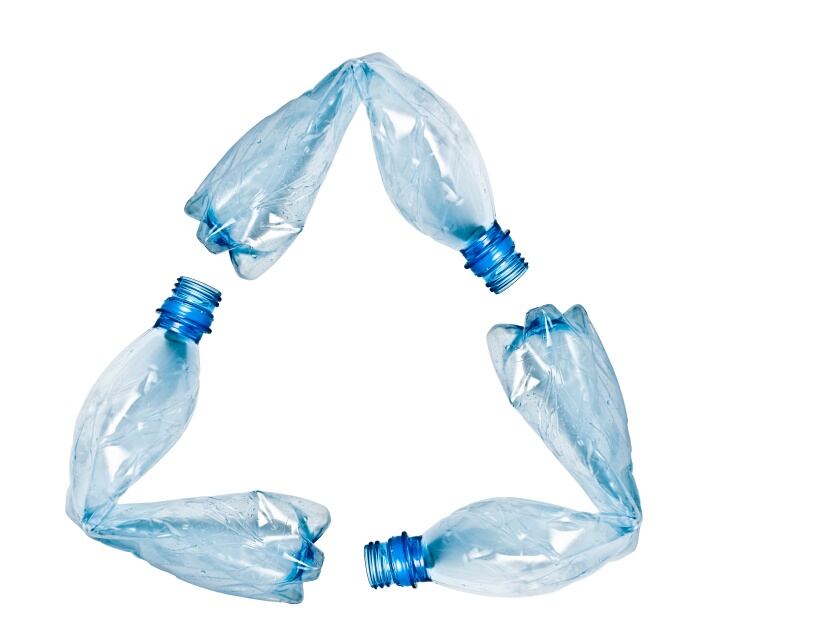Nestlé said it aims to reduce its use of virgin plastics by one third by 2025. The investment builds on its commitment to make 100% of its packaging recyclable or reusable by 2025 and the inauguration of the Nestlé Institute of Packaging Science last year, both of which will contribute towards the Swiss food giant’s goal of achieving net zero emissions by 2050.
A market for recycled plastics
Food grade plastic packaging plays an important role in ensuring food safety and quality. But most plastics are difficult to recycle for food packaging – leading to limited supply of food grade recycled plastics.
Nestlé wants to combat this and ‘create a market’ by committing to source up to two million metric tonnes of food-grade recycled plastics. Nestlé also revealed it will allocate more than CHF1.5bn to ‘pay a premium’ for these materials between now and 2025.
“Nestlé will seek operational efficiencies to keep this initiative earnings neutral,” the company said.
Nestlé added packaging innovation - including new materials, refill systems and recycling solutions - is another ‘key challenge’.
In addition to the work already underway at the Nestlé Institute of Packaging Sciences, the company will launch a CHF250m sustainable packaging venture fund to invest in start-up companies that focus on these areas.
“No plastic should end up in landfill or as litter,” said Mark Schneider, CEO of Nestlé. “Making recycled plastics safe for food is an enormous challenge for our industry. That is why in addition to minimizing plastics use and collecting waste, we want to close the loop and make more plastics infinitely recyclable. We are taking bold steps to create a wider market for food-grade recycled plastics and boost innovation in the packaging industry. We welcome others to join us on this journey.”
‘We can create an economy where plastic never becomes waste’
The news was welcomed by plastics campaign group, the Ellen MacArthur Foundation.
CEO Andrew Morlet said achieving the commitments outlined by Nestlé will ‘significantly contribute’ towards the eradication of plastic waste.
"By eliminating the plastics we don’t need, innovating in areas like reuse models and new materials, and circulating the plastics we do need -- also in more challenging food grade applications -- we can create an economy where plastic never becomes waste,” he suggested.
But is a focus on recycling the answer?
Over the past year, Nestlé has faced criticism over its reliance on plastic packaging.
In a report from SIGWATCH - a global research and strategy consultancy which tracks NGO campaigns – Nestlé, alongside Coca Cola, came under fire for failing to reduce its use of plastic packaging in 2019.
Greenpeace and its allies accuse the food giant of being a 'top plastic polluter' and a 'top contributor to marine plastic pollution', the analysis found.
SIGWATCH noted environmentalists are disappointed that Nestlé is focusing 'too much' on recycling and bioplastic or paper alternatives, which they claim exacerbate environmental problems. NGOs have called for greater efforts to go towards a paradigm shift away from single-use packaging formats.
In a recent report, Greenpeace suggested that the approach taken by Nestlé and its F&B peers lean on 'false solutions' to the plastic crisis. The report, based on audits of plastic waste across the globe, named Nestlé the second-largest plastic polluter worldwide behind Coca Cola. PepsiCo was ranked third, followed by Mondelez International and Unilever.
"Recent commitments by corporations like Coca-Cola, Nestlé, and PepsiCo to address the crisis unfortunately continue to rely on false solutions like replacing plastic with paper or bioplastics and relying more heavily on a broken global recycling system,” said Greenpeace Southeast Asia plastic campaign coordinator Abigail Aguilar.
“These strategies largely protect the outdated throwaway business model that caused the plastic pollution crisis, and will do nothing to prevent these brands from being named the top polluters again in the future.”
Robert Blood, founder and managing director, SIGWATCH, told FoodNavigator that Nestlé's announcement is 'noteworthy' but suggested that it is unlikely to appease environmentalists who want to see a move away from any single-use packaging, recycled or otherwise.
“Any significant move by a major corporate sets the pace for the rest of the industry, so what Nestle has done is noteworthy. Switching from virgin to recycled plastics has to be the way to go in the short term, until feasible alternatives to single use plastic become available. That said, Greenpeace appears not terribly impressed. It is not shifting from its original position that only non-synthetic, non-disposable packaging is acceptable.”

